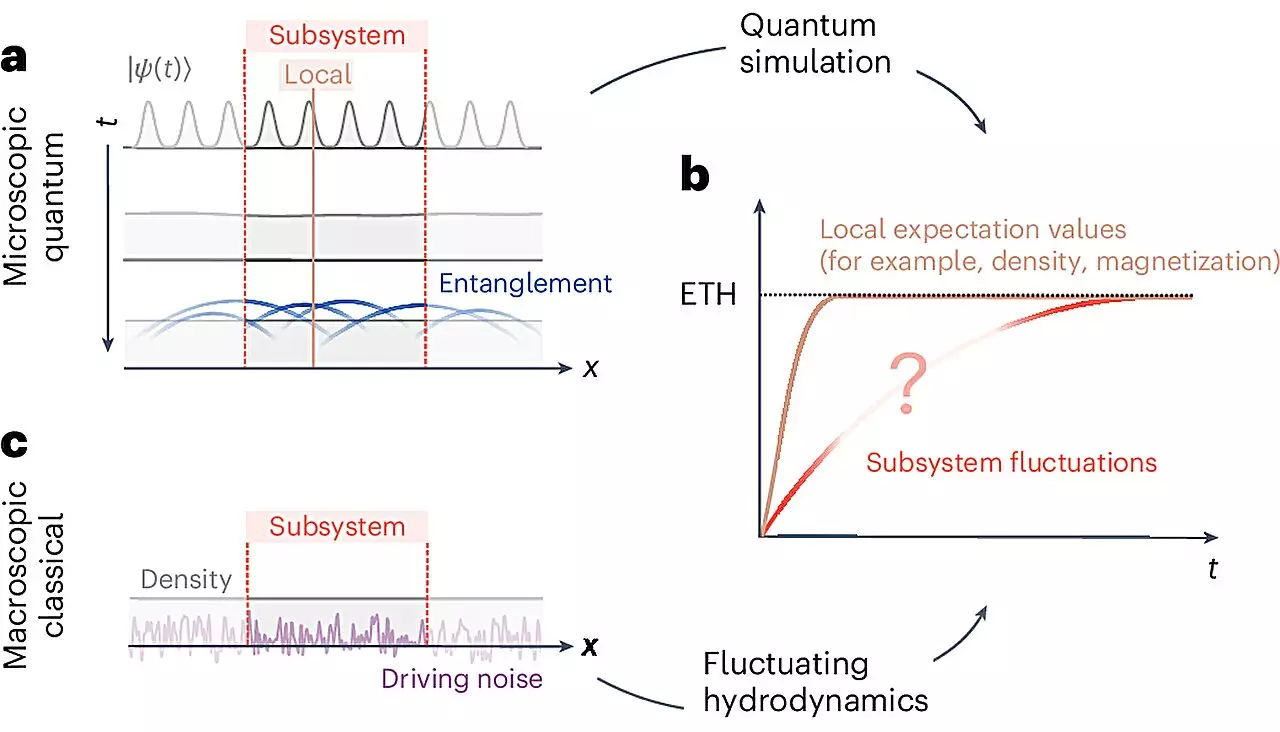Quantum physics has always been a realm of complexity and unpredictability. However, recent research conducted by Professor Monika Aidelsburger and Professor Immanuel Bloch from the LMU Faculty of Physics challenges this notion. The study published in the journal Nature Physics delves into the world of quantum many-body systems and explores the possibility of describing them using simple diffusion equations with random noise.
The team’s approach to understanding quantum many-body systems revolves around the concept of fluctuating hydrodynamics (FHD). This theory suggests that complex systems can be simplified by focusing on a single quantity known as the diffusion constant. By analyzing the behavior of small particles undergoing Brownian motion, the researchers found that FHD could potentially offer a macroscopic description of chaotic quantum systems.
Quantum systems pose unique challenges due to the fundamental differences in the laws of physics governing them compared to classical systems. Concepts like uncertainty and entanglement make quantum interactions particularly difficult to predict and analyze. However, the researchers believe that embracing FHD could provide a clearer understanding of chaotic quantum systems, ultimately simplifying their description.
To test their hypothesis, the research team studied the behavior of chaotic many-body quantum systems using ultracold cesium atoms in optical lattices. By preparing the quantum system in a non-equilibrium initial state and allowing it to evolve freely, the researchers were able to observe the growth of fluctuations and density correlations over time. Surprisingly, the results indicated that FHD could effectively describe the system both qualitatively and quantitatively.
The discovery that chaotic quantum systems may be described macroscopically through FHD opens up new possibilities in the field of quantum physics. By simplifying the description of these complex systems, researchers could potentially gain deeper insights into the dynamics of quantum interactions. The implications of this research extend beyond theoretical understanding and could have practical applications in various quantum technologies.
The study conducted by Professor Monika Aidelsburger and Professor Immanuel Bloch sheds light on the potential of fluctuating hydrodynamics in simplifying the description of chaotic quantum systems. By focusing on macroscopic diffusion processes rather than microscopic interactions, researchers may be able to unravel the mysteries of quantum physics more effectively. The findings of this research pave the way for further exploration into the application of FHD in understanding the complexities of the quantum world.


Leave a Reply